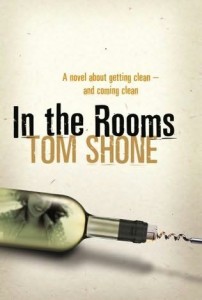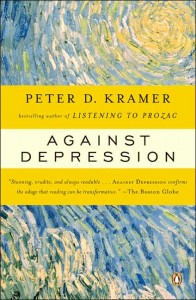 While doing research for his debut novel, In the Rooms (about a literary agent named Patrick Miller who feigns, in the tradition of Dexter and Fight Club, an addiction as a means to an end…in this case, signing a literary legend), Tom Shone studied the effects of sobering up (or not) on some famous writers, as well as their widely differing attitudes toward recovery, rehab, and programs like AA. Here are some of his findings in this essay for Intelligent Life magazine. A couple of, er, tastes:
While doing research for his debut novel, In the Rooms (about a literary agent named Patrick Miller who feigns, in the tradition of Dexter and Fight Club, an addiction as a means to an end…in this case, signing a literary legend), Tom Shone studied the effects of sobering up (or not) on some famous writers, as well as their widely differing attitudes toward recovery, rehab, and programs like AA. Here are some of his findings in this essay for Intelligent Life magazine. A couple of, er, tastes:
Cheever emerged from rehab a different man, 20 pounds lighter, feeling 20 years younger. “I am changed violently,” he said, and so too was his work. After years of squeezing toothpaste out of an ever tighter tube, he powered his way through a new novel, finishing it within a year. “It is as if our Chekhov had tucked into a telephone booth and reappeared wearing a cape and leotard of Dostoyevsky’s ‘Underground Man’,” wrote the New York Times of the resulting book, “Falconer”, a “dark radiant fable” about a man’s escape from prison, whose frank depictions of homosexuality and addiction shocked the Book of the Month crowd expecting Cheever’s usual martini-hour melancholy. It was a work of liberation in every sense.
And on the other end of things:
“AA can only help weak people because their ego is strengthened by the group,” said Fitzgerald. “I was never a joiner.” Certainly, if what you’re used to is rolling champagne bottles down Fifth Avenue beneath the light of a wanton moon or getting into the kind of barfights that make a man feel alive, truly alive, the basic facts of recovered life—the endless meetings, the rote ingestion of the sort of clichés the writer has spent his entire life avoiding—are below prosaic.
This debate reminds me a bit of a book I’m (finally) reading, Peter D. Kramer’s Against Depression, which by turns is both brilliant and infuriating. I absolutely agree with the book’s central premise — that depressed artists often romanticize their illness to the point that they avoid therapy and/or medication because they think they need that darkness to produce great work…when in reality, they’d probably create more and better work (and of the less self-aggrandizing or self-pitying variety) if they sought treatment. For someone who has spent much of his or her life depressed, the memory of that darkness isn’t going anywhere, and the right drugs or therapists won’t annihilate or even hamper a rich imagination.
 Yes, yes! I thought, as I — in functioning-melancholic style — rather merrily called up several loved ones who battle (or don’t battle) depression and read them long passages. My boyfriend put a pillow over his head, then said he might read it. Later. After DFW’s suicide, I sheepishly hid the book in my underwear drawer for several months, but while unpacking in Columbus, I picked it up again.
Yes, yes! I thought, as I — in functioning-melancholic style — rather merrily called up several loved ones who battle (or don’t battle) depression and read them long passages. My boyfriend put a pillow over his head, then said he might read it. Later. After DFW’s suicide, I sheepishly hid the book in my underwear drawer for several months, but while unpacking in Columbus, I picked it up again.
As I continue reading, I’m more skeptical. What’s worrying about Against Depression are the occasional but pronounced moments when the author takes a superior attitude to his patients, the ones who continue to see their illness as an important, if destructive, part of their identity. I understand his frustration, but in such moments Kramer reminds us that he is someone who has never been depressed (or an alcoholic or addict of any kind) or an artist. And this purposeful distance, this occasional lack of empathy, would make it hard for a depressed person to fully trust him that taking anti-depressants won’t take away the deep need to create or the drive behind that — and that finding a new way in will be worth it.
Many artists are, as Fitzgerald noted, skeptical about any group mentality, the adoption of rote answers, or the use of a drug that makes you feel more stable, that makes your emotions less intense — even if the goals are support and health. People who offer up the knee-jerk criticism, “If you were a diabetic, you would take your insulin,” don’t seem to realize that there isn’t as precise a medicine for depression, that dosages remain mysterious, and even a cocktail-and-response the doctor perceives as “working” might not be working for the patient. For alcoholics, it may seem simpler — you just stop drinking — but when so much of your former life (be it social or solitary) revolved around holding a bottle or glass and feeling something you are no longer allowed to, you have to do more life revision than merely erasing that bottle or glass from your hand. Add art to the equation–art that for years saved you from that depression or came in bursts during that drinking–and you might have to wonder, for the first time or even harder, why you need it. Where it comes from. Why it matters. Will Against Depression explore these kinds of questions? I hope so.
The Rooms, a novel that will not be housed in the self-help section of any bookstore, will be released in the United States next year; it recently published in the UK (Hutchinson), where the Independent called Shone “brave” in his decision to “take on” AA culture, but the Sunday Times described the book as a “cutting” yet “rather forgiving book, pulling its punches and turning into a romantic comedy about a man who is a schmuck, instead of pressing home its dissection of a character who is — as Kelsey tells him — ‘loathsome even by the standards of the industry you represent’.” Reviewer Phil Baker notes that
[t]he AA angle works neatly within the theme of the book, because Miller’s lying flips together so well with the alcoholic tendency to “denial”. Indeed it is the sacrosanct truthfulness of an AA meeting — the sharing of personal testimonies — that makes Hannah [a woman he meets in AA] so disgusted with Miller for attending under false pretences. She can cope with the fact that he is a book-biz pimp trailing Kelsey [the author he wants to sign], but not with his misleading people who are trying to be honest about themselves.
Thanks to Celeste for sending me the Tom Shone article.


